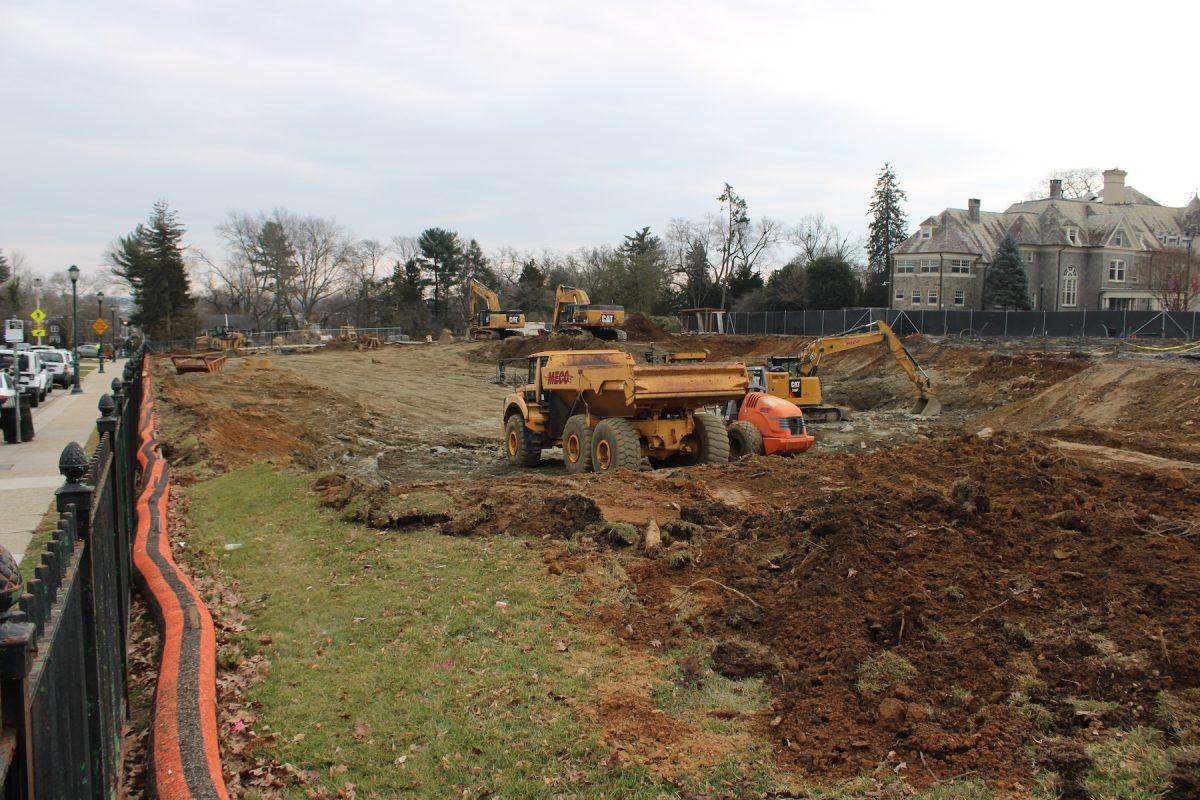What will be happening at the construction site on Cardinal Avenue?
Subsurface blasting will occur at the site of the ongoing construction of Sister Thea Bowman Hall, which is expected to open in fall 2025. The blasting is expected to begin Feb. 14.
What is subsurface blasting?
In construction, subsurface blasting is the process of placing and detonating explosives at strategic points in large rocks. When the dust settles, these previously immovable rocks are broken down into smaller, easily removable pieces. In almost all situations, this process is much cheaper and faster than the alternative method of chipping away at the rock with jackhammers.
How will we know when the explosions will happen?
According to a Jan. 31 email sent to students from Kevin Mueller, senior director of construction and planning, three air horns will sound five minutes before each explosion, and then two air horns will sound one minute before each explosion. This process is expected to last from four to six weeks, accounting for delays. These explosions are expected to occur two times per day, the first around 10 a.m. and the second around 2 p.m., but may not occur every day depending on weather conditions and the results of the previous explosion.
What safety measures will be put in place?
Mueller described a number of additional steps that St. Joe’s is taking to ensure the safety of everyone nearby in an email to The Hawk. Primarily, a 50-foot “blast zone” will be established around the 5800 block of City Avenue.
“One minute prior to subsurface blasting, all pedestrian and vehicular traffic in the caution area will be fully stopped before subsurface blasting operations,” Mueller wrote in response to written questions from The Hawk.
Traffic will be stopped in all lanes on City Avenue.
Additionally, police officers and safety personnel will be placed in at least 10 locations around the construction site and sensors will be used to ensure that the sound levels do not rise to dangerous levels, said Mueller.
What legal protections are in place?
Because blasting is a convenient option for construction, it has become common and has many regulations. The Pennsylvania Department of Environmental Protection, the Occupational Safety and Health Administration and the Bureau of Alcohol, Tobacco, Firearms and Explosives all have requirements that companies must meet both before and during blasting. According to these agencies’ websites, these include rules about notifying and receiving approval from the government before blasting begins, how to manage a blasting site so that no employees get injured and how quickly multiple explosions can happen.







































